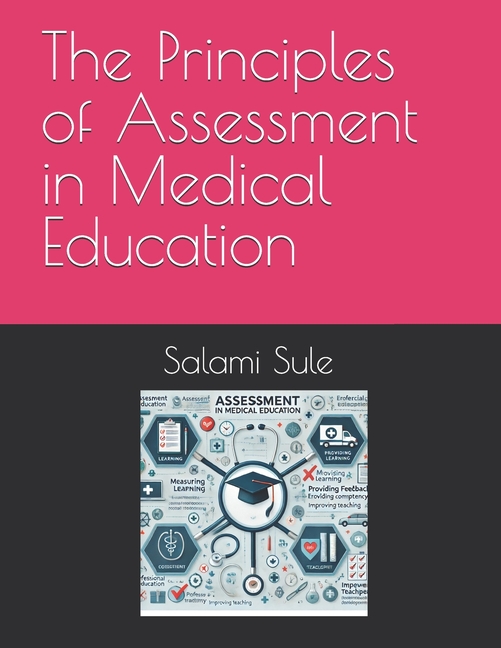Description
In the evolving landscape of medical education, assessment is no longer just a measurement tool; it is a transformative force that shapes learning, defines competency, and drives curriculum improvement. Principles of Assessment in Medical Education by Dr. Salami Sule is a groundbreaking and contextually rich textbook that addresses the theory, practice, and real-world application of assessment in both undergraduate and postgraduate medical training.
Drawing on the author's extensive experience at the National Postgraduate Medical College of Nigeria (NPMCN) and advanced studies in medical education at the University of Dundee, this book offers a unique blend of international best practices and local relevance tailored to the needs of health professions education in Africa and beyond.
What This Book Offers
Drawing on the author's extensive experience at the National Postgraduate Medical College of Nigeria (NPMCN) and advanced studies in medical education at the University of Dundee, this book offers a unique blend of international best practices and local relevance tailored to the needs of health professions education in Africa and beyond.
What This Book Offers
This comprehensive textbook is structured across eight chapters, each building progressively on essential concepts in assessment science:
- Chapter 1: Introduction to Assessment in Medical Education
- Chapter 2: Theoretical Foundations of Assessment
- Chapter 3: Designing Effective Assessments
- Chapter 4: Tools and Methods of Assessment in Medical Education
- Chapter 5: Ensuring Validity and Reliability
- Chapter 6: Standard Setting
- Chapter 7: Self and Peer Assessment
- Chapter 8: Giving Feedback
Case Studies: Bridging Theory and Practice
The book includes 18 real-life and simulated case studies that demonstrate the application of theory in clinical and academic settings.
Why This Book Matters
In a time where competency-based medical education is becoming the global standard, this textbook provides the tools, language, and frameworks to implement meaningful, fair, and defensible assessments.
Last updated on
Product Details
- Jul 7, 2025 Pub Date:
- 9798291434468 ISBN-10:
- 9798291434468 ISBN-13:
- English Language




